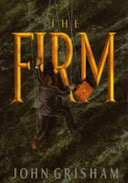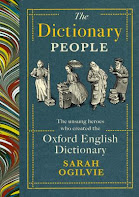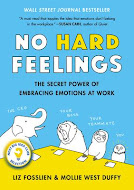Whether you're hunting for an audiobook for long commutes or seeking out a perfect beach vacation read, it can be daunting to pick the right title. After all, no one wants to be stuck on a long plane ride with a book that turns out to be a dud! To help you find something good to read this summer, the Goodson Law Library staff are once again sharing their recent recommendations. You can see some of these titles in person at the service desk display this month, along with special summer reading bookmarks.
Magic for Beginners: Stories, by Kelly Link (2005). (Request a print copy or read the e-book!). "Based on the recommendation from a friend and fellow librarian, I began reading this book as an escape from the everyday, and it has not disappointed. Kelly Link's short stories paint of world of magic that lurks behind the mask of the ordinary." –Julie Wooldridge, Research Services Librarian and Senior Lecturing Fellow
The Firm, by John Grisham (1991). (Borrow a print copy or DVD of the movie version!). "Star Harvard Law student Mitch McDeere is recruited to join a small tax firm based in Memphis. Although the firm presents itself as a family...the term 'family' is clearly a double entendre, as Mitch learns about the high body count among partners. As he uncovers more and more secrets, he finds himself literally running for his life, all while (perhaps more fear-inducing) studying for the bar. Who knew that being a tax lawyer was this kind of exciting?" – Wick Shreve, Head of Scholarly Services and Senior Lecturing Fellow
No One Would Listen: A True Financial Thriller, by Harry Markopolos (2010). (Borrow a print copy or access the e-book!) "Before Bernie Madoff’s $64 billion Ponzi scheme finally collapsed, quantitative analyst Harry Markopolos warned the S.E.C. repeatedly--five times over nine years!--that Madoff’s supposed investment strategy simply didn’t add up. No One Would Listen is at once a tick-tock of Markopolos and his team's fruitless attempts to expose Madoff's fraud, an insider's view of life at investment companies, and a scathing (and surprisingly funny) account of regulatory capture. For a fascinating bigger-picture analysis of Madoff and his scheme, The Wizard of Lies: Bernie Madoff and the Death of Trust (request a print copy!) by award-winning financial journalist Diana Henriques is also highly recommended." – Laura Scott, Assistant Director for Reference, Clinics, and Outreach and Senior Lecturing Fellow
The Dictionary People: The Unsung Heroes Who Created the Oxford English Dictionary, by Sarah Ogilvie (2023). (Borrow a print copy!) "Every 1L consults the Oxford English Dictionary during LARW appellate brief research, and most probably don't think about how it came into being. The OED's original publication was a massive, decades-long undertaking that crowdsourced definitions and usage examples from thousands of members of the public. One particularly notorious contributor's story has been told in places ranging from The Professor and the Madman to Drunk History, but The Dictionary People delves into the biographies of many, many more individuals who helped to shape the first edition of the OED. A delightful read for word nerds!" –Jennifer L. Behrens, Associate Director for Administration and Scholarship and Senior Lecturing Fellow
No Hard Feelings: The Secret Power of Embracing Emotions at Work, by Liz Fosslien and Mollie West Duffy (2019). (Request a print copy, borrow the audiobook, or access the e-book!) "No Hard Feelings is one of the most relatable and useful books about work that I have read. The authors deal with emotional intelligence, productivity, and work/life balance in a way that is humorous, practical, self-aware, and kind. I loved that the authors give advice in a way that made me feel understood, helped me to understand others, and felt like I was receiving advice from a mentor." –Chelsey McKimmy, Research Services Librarian and Lecturing Fellow
To locate additional recommended readings this summer, try the NoveList Plus database, which provides curated lists on specific genres as well as an "appeal mixer" tool to generate customized recommendations based on your parameters about the book's pace, characters, tone, and storyline. The New York Times has also recently released an interactive timeline of The Book Review's Best Books Since 2000. (Remember that current Law School community members can join the NYTimes.com group subscription by following the steps described at https://law.duke.edu/lib/legal-databases.) To see if recommended titles are available in the Duke campus libraries, search the online catalog.
For help with accessing these resources or obtaining additional information, be sure to Ask a Librarian.









